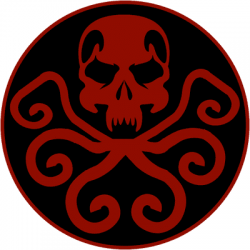- Sep 22, 2013
- 4,956
- 250
- 85
This is a capitalism-premise inspired by Hobbes' 1651 'politics-customs' work Leviathan.

====
Americans loved toys and made the best toys in the world. American toy companies Hasbro, Mattel, and Fisher-Price had offered consumers terrific model-toys of rich animated fantasy-adventure franchises such as Transformers, Wuzzles, and He-Man. Capitalism was surprisingly fun!

Americans also loved movies and made the best movies (the most entertaining!) in the world (most arguably). The films The Lion King (Jeremy Irons) and The Beach (Leo DiCaprio) both presented nihilistic fictional characters, Scar (a scheming governance critic of the ordained 'lion-king') and Richard (a brooding American traveller who contemplates the 'wisdom' of isolationism on an idyllic unmapped island), who represented anti-social consciousness. Scar was a natural-born 'terrorist,' while Richard was a pensive 'Beatnik' and they both captured America's fascination with social etiquette. Was capitalism a 'brothel' for demonic-dialogue? What was TrumpUSA? Did capitalism promote networking-anthropology?

A scholar might suggest that Scar (the evil lion from The Lion King) was some kind of timeless mythic 'lion-gorgon' (or gargoyle) who symbolized the 'leviathan' of dissatisfaction with 'normal government.' A scholar might suggest Richard's character from The Beach was a 'template' for an anarchy-oriented comic book super-villain such as Marvel's Gray Goblin (a 'son-of-perdition' who represents urban/commercial angst). As Planet Hollywood culture/customs became global, scholars wondered if the characters/avatars presented in cinema captured a civilization fascination with political idealism. Capitalism (e.g., the movie box-office) was creating an 'etiquette arena.' Would terrorists (e.g., Taliban, ISIS) strike at this Hollywood super-market?

Americans appreciate art, and various art museums across the USA housed precious works by celebrated artists such as Chagall and Van Gogh. Now that media was making access to intellectual properties much more colloquial (e.g., Wikipedia), would there be a new 'networking aesthetic' (e.g., Home Shopping Network)?

Americans also loved comic books. Fantastic anti-heroes, superhumans, and incredible villains all symbolized a modern social curiosity about the 'shape' and 'appearance' of civics/customs-related matters such as justice, vigilantism, toys, governance, idealism, and of course heroism. Magneto and Doctor Doom were Marvel Comics icons who represented the fear of anarchy in the modern world of science and government. Magneto could manipulate magnetic fields, while Doctor Doom was an accomplished conspirator. Magneto and Doctor Doom were to civilization-imagination what Scar (the evil lion from The Lion King) and Richard (isolationist-thinker from The Beach) were to new age magazines(!). Capitalism was officially a 'traffic podium' (for gypsies and gamblers alike).

America was learning from the rest of the world about the interplay between history and economics. Fashion/style would be wed to psychology and culture (e.g., Today's Man). Consumers wanted presentations of creative links between tradition and lifestyle (e.g., Olive Garden).

As Americans and social critics wrestled with these issues, sci-fi writers and film-makers envisioned fantastic futuristic monsters and 'leviathans' who represented a new age angst towards the 'shape' and 'appearance' of civilization evolution. These behemoths of energy and monstrosity such as MechaGodzilla, T-1000, and Video-Man were the new Grendels of the apocalypse. How would archaeologists measure the anti-globalization scars of 9/11 (the 2001 terrorist-attack on the World Trade Center)?

Americans required serious cheerleading...



Would 9/11 destroy America's optimism towards ambitious urban development? Would capitalism continue to facilitate 'kid-friendly imagination' (for all consumers)? Someone call the psychiatrist...

GOD: Capitalism sometimes promotes gambling...
SATAN: Risk always spells forms of piracy.
GOD: There are daredevils and there are thinkers.
SATAN: Are you a fan of The Lion King and The Beach?
GOD: I appreciate how both films symbolize modern daydreams(!).
SATAN: Modern Americans care about primalism and governance.
GOD: Scar and Richard both represent these concerns...
SATAN: Yes, I agree; capitalism has created healthy vitality-dialogue.
GOD: It's a 'Starbucks universe' I think!
SATAN: Beware of the dangers of caffeine...e.g., workaholic-mentality.
GOD: There's nothing wrong with industriousness.
SATAN: As long as there is controllable ambition (e.g., Wall Street).
GOD: If Wall Street produces wolves/sharks, there will always be supervisors.
SATAN: I suppose The Wall Street Journal represents 'supervision.'
GOD: There's no reason capitalism debates can't be...aesthetic.
SATAN: That's the real challenge --- making capitalism intellectual.
GOD: I realize sometimes Burger King and Wal-Mart seem 'crude.'
SATAN: Perhaps the AntiChrist will be a movie-star talking about Napster.
GOD: Let's just keep faith that America will secure the World Bank!
====



====
Americans loved toys and made the best toys in the world. American toy companies Hasbro, Mattel, and Fisher-Price had offered consumers terrific model-toys of rich animated fantasy-adventure franchises such as Transformers, Wuzzles, and He-Man. Capitalism was surprisingly fun!
Americans also loved movies and made the best movies (the most entertaining!) in the world (most arguably). The films The Lion King (Jeremy Irons) and The Beach (Leo DiCaprio) both presented nihilistic fictional characters, Scar (a scheming governance critic of the ordained 'lion-king') and Richard (a brooding American traveller who contemplates the 'wisdom' of isolationism on an idyllic unmapped island), who represented anti-social consciousness. Scar was a natural-born 'terrorist,' while Richard was a pensive 'Beatnik' and they both captured America's fascination with social etiquette. Was capitalism a 'brothel' for demonic-dialogue? What was TrumpUSA? Did capitalism promote networking-anthropology?
A scholar might suggest that Scar (the evil lion from The Lion King) was some kind of timeless mythic 'lion-gorgon' (or gargoyle) who symbolized the 'leviathan' of dissatisfaction with 'normal government.' A scholar might suggest Richard's character from The Beach was a 'template' for an anarchy-oriented comic book super-villain such as Marvel's Gray Goblin (a 'son-of-perdition' who represents urban/commercial angst). As Planet Hollywood culture/customs became global, scholars wondered if the characters/avatars presented in cinema captured a civilization fascination with political idealism. Capitalism (e.g., the movie box-office) was creating an 'etiquette arena.' Would terrorists (e.g., Taliban, ISIS) strike at this Hollywood super-market?
Americans appreciate art, and various art museums across the USA housed precious works by celebrated artists such as Chagall and Van Gogh. Now that media was making access to intellectual properties much more colloquial (e.g., Wikipedia), would there be a new 'networking aesthetic' (e.g., Home Shopping Network)?
Americans also loved comic books. Fantastic anti-heroes, superhumans, and incredible villains all symbolized a modern social curiosity about the 'shape' and 'appearance' of civics/customs-related matters such as justice, vigilantism, toys, governance, idealism, and of course heroism. Magneto and Doctor Doom were Marvel Comics icons who represented the fear of anarchy in the modern world of science and government. Magneto could manipulate magnetic fields, while Doctor Doom was an accomplished conspirator. Magneto and Doctor Doom were to civilization-imagination what Scar (the evil lion from The Lion King) and Richard (isolationist-thinker from The Beach) were to new age magazines(!). Capitalism was officially a 'traffic podium' (for gypsies and gamblers alike).
America was learning from the rest of the world about the interplay between history and economics. Fashion/style would be wed to psychology and culture (e.g., Today's Man). Consumers wanted presentations of creative links between tradition and lifestyle (e.g., Olive Garden).

As Americans and social critics wrestled with these issues, sci-fi writers and film-makers envisioned fantastic futuristic monsters and 'leviathans' who represented a new age angst towards the 'shape' and 'appearance' of civilization evolution. These behemoths of energy and monstrosity such as MechaGodzilla, T-1000, and Video-Man were the new Grendels of the apocalypse. How would archaeologists measure the anti-globalization scars of 9/11 (the 2001 terrorist-attack on the World Trade Center)?
Americans required serious cheerleading...



Would 9/11 destroy America's optimism towards ambitious urban development? Would capitalism continue to facilitate 'kid-friendly imagination' (for all consumers)? Someone call the psychiatrist...
GOD: Capitalism sometimes promotes gambling...
SATAN: Risk always spells forms of piracy.
GOD: There are daredevils and there are thinkers.
SATAN: Are you a fan of The Lion King and The Beach?
GOD: I appreciate how both films symbolize modern daydreams(!).
SATAN: Modern Americans care about primalism and governance.
GOD: Scar and Richard both represent these concerns...
SATAN: Yes, I agree; capitalism has created healthy vitality-dialogue.
GOD: It's a 'Starbucks universe' I think!
SATAN: Beware of the dangers of caffeine...e.g., workaholic-mentality.
GOD: There's nothing wrong with industriousness.
SATAN: As long as there is controllable ambition (e.g., Wall Street).
GOD: If Wall Street produces wolves/sharks, there will always be supervisors.
SATAN: I suppose The Wall Street Journal represents 'supervision.'
GOD: There's no reason capitalism debates can't be...aesthetic.
SATAN: That's the real challenge --- making capitalism intellectual.
GOD: I realize sometimes Burger King and Wal-Mart seem 'crude.'
SATAN: Perhaps the AntiChrist will be a movie-star talking about Napster.
GOD: Let's just keep faith that America will secure the World Bank!
====

